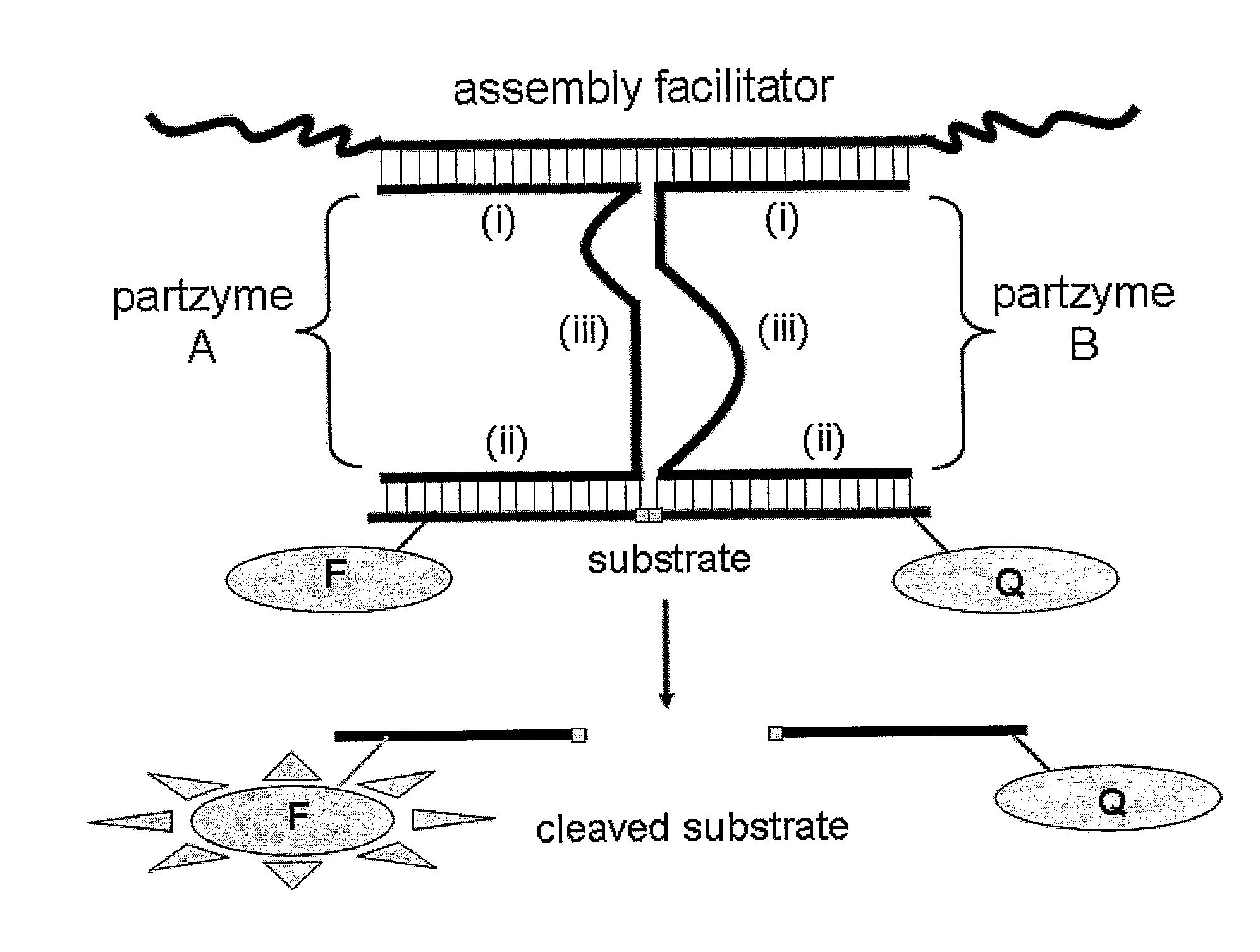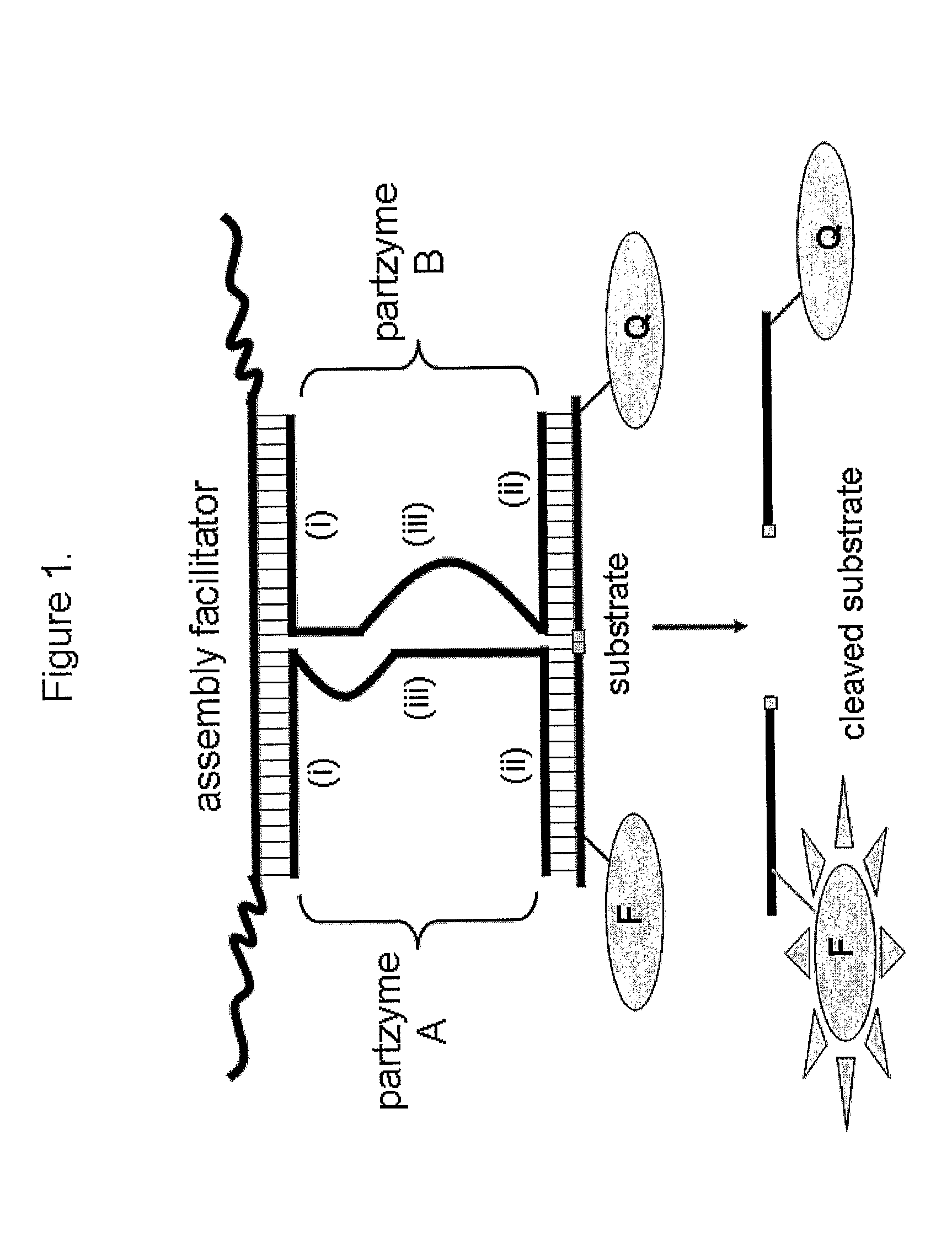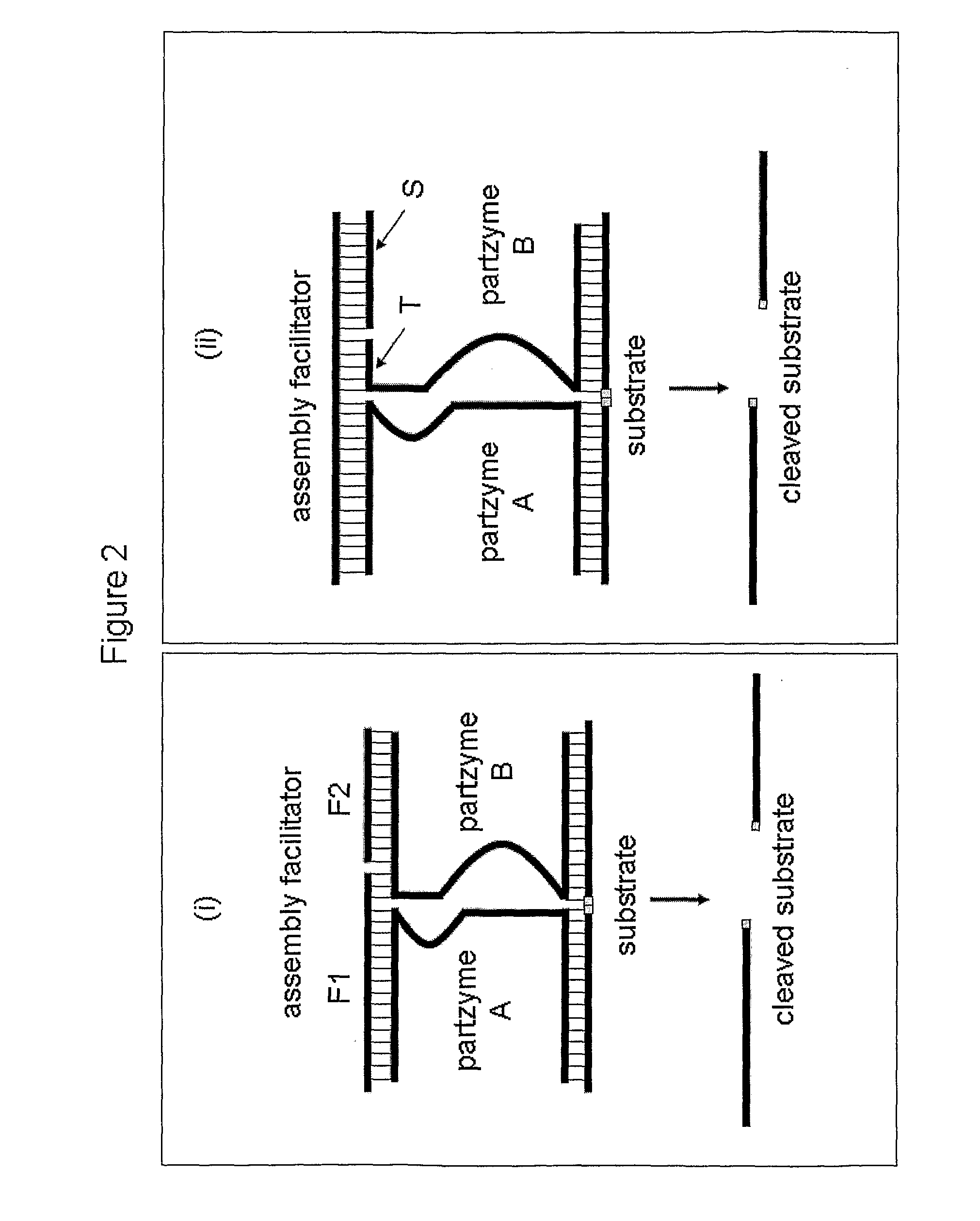Molecular Switches And Methods For Their Use
- Summary
- Abstract
- Description
- Claims
- Application Information
AI Technical Summary
Benefits of technology
Problems solved by technology
Method used
Image
Examples
example 1
Example of an MNAzyme where Partzyme B Comprises Two Molecules
[0350]Many variations on the basic design of an MNAzyme are contemplated in the present invention. In this example, MNAzymes were assembled in the presence of an assembly facilitator from partzyme A, and partzyme B which contained two components, namely one partzyme component with a truncated sensor arm, and one component that functions as a stabiliser arm. MNAzyme assembly occurs via Watson-Crick base recognition of the partzyme sensor arms and the assembly facilitator sequence. In the following example, the use of a truncated partzyme arm and a stabiliser arm was demonstrated.
[0351]The MNAzyme detection strategy used in this example is illustrated in FIG. 2 (panel (ii)) and in FIG. 3.
[0352]The oligonucleotides required are described below:[0353]a) a standard partzyme A;[0354]b) a partzyme B comprising a first component which contains a substrate arm, a partial catalytic core and truncated sensor arm; and a second stabil...
example 2
Regulation of the Assembly and Disassembly of MNA Complexes Using Temperature and its Application to the Construction of a DNA Nano-Scale Device for Temperature Sensing
[0365]MNAzyme assembly and disassembly can also be controlled by temperature. A rise or fall in temperature can provide a mechanism with which to switch the catalytic activity of the MNAzyme “on” and “off”. The sensitivity of an MNAzyme to temperature could be exploited to build thermo-sensors and rheostats.
[0366]If the temperature were either too high, or too low, for the assembly (hybridization) of the component oligonucleotides, and / or for catalytic activity, of an MNAzyme then an active complex capable of modifying (eg cleaving) a substrate would not be formed. If the temperature were permissive for MNAzyme assembly and / or activity then a substrate would be modified and a signal would be generated.
[0367]The ability to change the melting temperature of the component oligonucleotides (for example, the partzymes, inc...
example 3
Mechanisms for Facilitating and Inhibiting the Assembly of Active MNAzymes or MNAi
[0372]An MNAzyme is composed of partzymes, which assemble in the presence of one or more assembly facilitator components, to form an active enzyme (e.g. FIGS. 1, 2, 4 (right hand panel), FIGS. 5 (i) and (ii) and FIG. 9 (left hand structures). The assembly facilitator(s), which binds to partzyme sensor arms, can be a target analyte, or can be a synthetic nucleic acid molecule(s) added to the reaction mix to drive MNAzyme assembly. In addition to their capacity to contribute to active MNAzyme assembly, partzymes can assemble into an inactive, non-catalytic, MNAi complex when they hybridise with an “activity inhibitor” molecule (FIG. 4 (left hand panel), FIG. 5 and FIG. 9 (structures to the right of MNAzyme structures)). Various alternative oligonucleotide sequences were tested for their capacity to regulate the assembly of either active MNAzyme complexes or MNAi.
[0373]In this example (depicted in FIGS. 4...
PUM
| Property | Measurement | Unit |
|---|---|---|
| Molar density | aaaaa | aaaaa |
| Molar density | aaaaa | aaaaa |
| Molar density | aaaaa | aaaaa |
Abstract
Description
Claims
Application Information
 Login to View More
Login to View More - R&D
- Intellectual Property
- Life Sciences
- Materials
- Tech Scout
- Unparalleled Data Quality
- Higher Quality Content
- 60% Fewer Hallucinations
Browse by: Latest US Patents, China's latest patents, Technical Efficacy Thesaurus, Application Domain, Technology Topic, Popular Technical Reports.
© 2025 PatSnap. All rights reserved.Legal|Privacy policy|Modern Slavery Act Transparency Statement|Sitemap|About US| Contact US: help@patsnap.com



